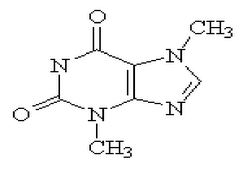
So: We're all replacing incandescent lightbulbs with compact fluorescents, thereby saving electricity, thereby reducing carbon emissions, thereby saving the planet, right?
Or are we?
A comment on another blog prompted me to check that truism. The point is made that, during the heating season (which around here runs from about October through April, depending on how tolerant you are to wearing sweaters indoors) we derive some benefit from the waste heat of electrical appliances like light bulbs. If we switch to more efficient bulbs, that heat must be made up by the furnace, which is presumably burning a fossil fuel.
So the question is: which is more efficient in terms of carbon emissions? Burning carbon-rich stuff for heat, or using electrical heat which includes a component generated from non-fossil sources (dams and nukes)?
Let's do some arithmetic:
I have a recent-model natural gas furnace which is advertised to be better than 95% efficient (ie: out of every joule of heat generated in the burner, 0.95 joules winds up warming the house). How much carbon does my furnace emit to deliver, say, 1 megajoule of space heating? First, to get that 1 MJ delivered, we need to burn about 1.05 MJ worth of fuel. Natural gas is mostly methane, the heat of combustion of which is 55.5 MJ/kg, so that 1 MJ of heat-made-good requires 1.05/55.5*1000 = 19 grams of gas. Methane (CH4) has a molecular weight of 16, only 12 of which is carbon, so the net carbon emission is 14.2 grams.
What about electrical heat?
The biggest loss in thermal-source electrical generation is right at the turbine. The maximum theoretical efficiency of any apparatus that converts heat into work is limited by the temperature difference between the input and the output. Given available materials, this means that the process that turns boiling water into electricity can never be more than about 40% (and that's generous). Knock off a little for transmission losses, and let's say that the overall efficiency -- from burning the fuel to lighting the bulb -- is 35%. That looks pretty bad until you consider that, in a typical power grid not all the electricity comes from fossil sources. Ontario Power Generation (to use the locally relevant example) gets only 27% of its power from fossil fuel plants (mostly coal, though with some contribution from oil or gas).
(Aside: That OPG page is pretty cool. The big number at the right shows the amount of power currently being generated in the system, continuously updated. As I write, Ontario is running on about 11.5 gigawatts. During summer heat waves, it gets up around 25 GW or more. Clicking on the hydro, nuclear and fossil links at the left lets you see how much is being contributed by each source. Really, engineers are fascinated by this sort of thing. That, and my late father worked for OPG's predecessor Ontario Hydro, so I have a familial interest in the old place. I've been in some of those stations, when he would take me out on a job.)
But back to the arithmetic: Anthracite coal yields 27MJ/kg when burned. So generating 1MJ of electricity emits (1/27)/35%*1000 = 106g of carbon. However, only 27% of OPG electricity comes from fossil sources, so we can discount that amount down to 28.6 grams.
Which is still twice as much as just running my furnace. You'd have to be using a crappy old furnace that was only about 50% efficient to be as bad as electric heat. And in the summer of course, there's no question: every watt of heat you don't produce in the house is one watt your air conditioner doesn't have to scavenge up and move outside.
Conclusion: Even when you allow for the space heating contribution of incandescents, compact fluorescent bulbs still win by a good margin.
[Note: to keep it simple (translation: I'm too lazy to do all the research) I've ignored a lot of upstream carbon contributions here, such as: manufacturing light bulbs; building the different kinds of power plants; mining, processing and transporting coal or uranium. Also, the generation mix I used is the cumulative figure for 2007, which does not necessarily reflect what OPG might be running on a typical cold January night.]


